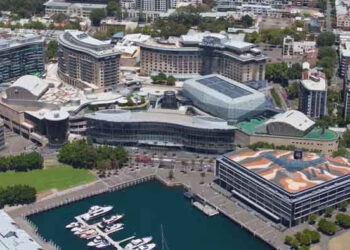Less than half of Macau’s licensed junkets are currently in operation, meaning the new annual cap of 50 junket licenses on offer in 2024 is unlikely to be filled, industry representatives have told Inside Asian Gaming.
As reported earlier this week, the Gaming Inspection and Coordination Bureau (DICJ) announced that the maximum number of gaming licenses to be issued next year would be 50, with the number of agents working with them also capped at 250.
However, junket representative U Io Hung told IAG that of the 36 licenses currently issued, less than half of those junkets are actually operational due to low profit margins and stringent vetting.
“There are less than 15 gaming junkets in operation at the moment because the threshold for operation is very high,” he said.
“The high threshold for applying for a license, the low profit margins and the stringent vetting process have discouraged many from applying.”
U Io Hung added that when a junket renews its license, the government treats it as a new company when examining the application, creating a complicated procedure that discourages many from applying in the first place.
The 50 junket cap also sees each concessionaire given a limit to the number of junkets they are allowed to cooperate with. Among them, Sands China and SJM Resorts are allowed the most junket partners with 12 apiece, followed by MGM China and Melco Resorts with eight each, and Galaxy Entertainment Group and Wynn Macau Ltd with five each.
U Io Hung said, “Some concessionaires want more gaming junkets and some don’t want too many. It depends on the concessionaire’s stance.”
The president of the Macau Responsible Gaming Association, Song Wai Kit, said the cap of 50 junkets was more than enough to cover for demand.
“At present there are only 36 gaming junkets in Macau, and the government has set the number at 50 next year, which is 38.9% higher than the current number, so the government has reserved a certain amount of room for growth, which is reasonable in terms of the number,” he said.
Song also insisted the junket sector still provides value to Macau, even while the city increasingly pushes towards the mass market.
“Gaming intermediaries accounted for a very large proportion [of revenue] in the past, which is useful in attracting international visitors and should be maintained at a certain proportion,” he said. “This is a complementary measure for tourism and gaming, and should leave the industry with room for development.”
On the limit of 250 junket agents, or collaborators, Song said there were only seven currently licensed by the DICJ.
“Are the requirements for collaborators too high?” he asked. “Or are there many unqualified persons in the system? The government can explore these issues in due course.”
U Io Hung added, “Not many people are willing to join the industry because the threshold is very high and the profit is very small.
“Many people have given up joining the collaborator industry because they need to pay a security deposit and the application procedures are not simple.”






























